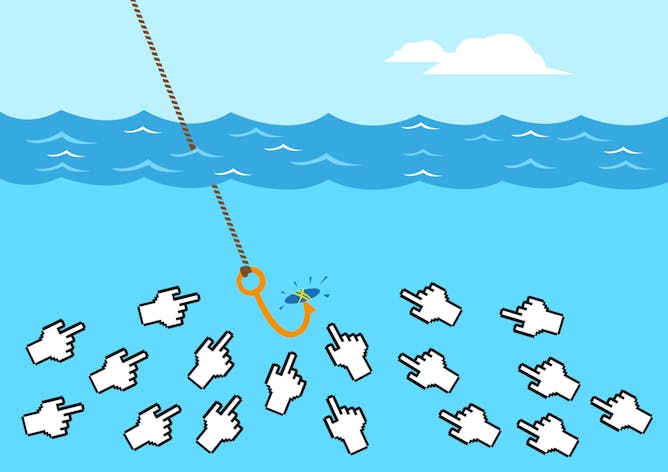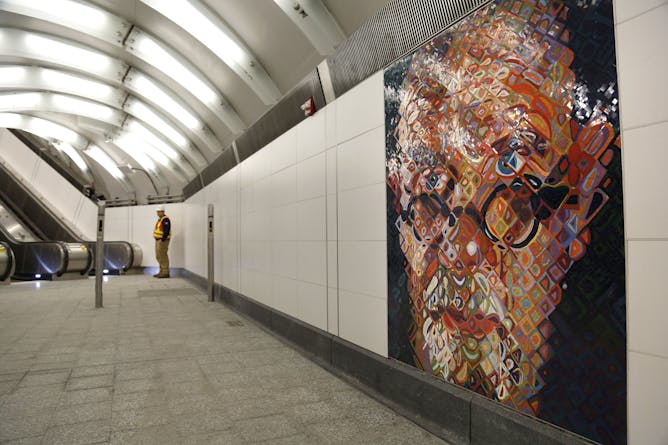
Is that clickbait true?
Crystal Eye Studio/Shutterstock.com
Anjana Susarla, Michigan State University
By 2022, people in developed countries may see more fake news than accurate information. Artificial intelligence may be to blame – but could also help people sort out the truth from lies.
|

Genetic testing for breast cancer gene mutations is now available. But it could lead to over treatment.
Fotos593/Shutterstock.com
Katherine Drabiak, University of South Florida
A genetics testing company recently won approval from the FDA to market a test that can identify a breast cancer gene mutation. But what are women supposed to do with that information? There's risk involved.
|

Mosaics by artist Chuck Close on the walls of the new 86th Street subway station on the Second Avenue line in New York.
AP Photo/Seth Wenig, File
Irina Aristarkhova, University of Michigan
In his short play from 1830, 'Mozart and Salieri,'
Russian poet Alexander Pushkin proposed that genius and evil are incompatible. Here's why this argument is worth revisiting in light of #MeToo.
|
|
|
|
|
|
|
Economy + Business
|
-
Alex Schwartz, The New School
The administration's proposed changes to a decades-old housing program supporting the poorest Americans would jack up rents and deepen poverty in the US.
-
Elizabeth C. Tippett, University of Oregon
The California Supreme Court made it harder to classify workers as independent contractors. But it's not quite the 'game changer' some observers claim it to be.
|
|
|
|